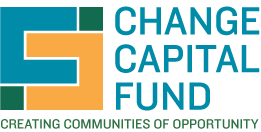With 16 donors from public and private sectors, Change Capital Fund looks to cross-sector solutions to inequality
One out of five New Yorkers live in poverty. But poverty is not randomly distributed in every neighborhood. In neighborhoods of concentrated poverty—where poverty rates are upwards of 30 percent—nonprofit service providers work in a myriad of ways to help children and families in need with education, job training and placement, and housing assistance. But, often hamstrung by chronic underfunding and a siloed approach to government contracting, these organizations are not able to realize their full promise.
In May 2014, Change Capital Fund (CCF) embarked on a four-year, $5 million project to better enable community development organizations to develop and implement high-impact interventions to address the city’s persistent poverty. Launched by some of the nation’s leading funders, CCF is comprised of 16 donors with representation from banks, foundations, community development intermediaries, and the New York City Center for Economic Opportunity.
The CCF supported grantees—Cypress Hills Local Development Corporation, Fifth Avenue Committee, New Settlement Apartments, and St. Nicks Alliance—have the vision to expand their capacity and to more effectively connect low-income people to New York City’s rich economic opportunities.
Each is taking on silo-busting efforts, such as intentionally combining and coordinating services for entire households, including multiple generations—an important strategy because of the demonstrated relationship between parental and child outcomes. CCF funds also enable the grantees to assess the effectiveness of their programs by identifying and tracking outcomes that cut across their organizations’ programs.
CCF is now at the midpoint of this four-year endeavor and the grantees have made remarkable strides implementing these programs. Grantees served more than 9,000 people in the second year, a 64 percent increase over the first year. They have integrated and enhanced programs that offer educational, employment, and housing services to members of their communities; cemented partner relationships that further their reach and impact; deployed new staff members; and expanded their ability to track and use cross-program data to refine their programs.
It has never been clearer that we must find cost-effective and cross-sector solutions to reduce poverty and address inequality, and create a city where all neighborhoods are neighborhoods of opportunity.
As a result, the grantees reported significant successes in job placement, educational achievement, and housing stability:
- Grantees made 790 job placements over two years with an average wage of $11.93 in the second year, an increase of $1.21 over the first year.
- More than 1,000 students enrolled in college through a college access program, with an 81 percent persistence rate, higher than the 69 percent national average.
- The number of adults achieving training or education outcomes increased from 117 in the first year to 427 in the second year; 72 adults received their TASC (high school equivalent degrees) over two years.
- Grantees expanded their program integration, as indicated by increasing referrals, from 248 in year one to 673 in year two, and improving the rate of completed referrals from 57 percent to 69 percent.
- In addition, CCF dollars have helped grantees raise an additional $9.8 million for their neighborhoods over the first two years.
In the next year, CCF grantees, city partners, and donors will continue to build on and refine our collective efforts. We have to. It has never been clearer that we must find cost-effective and cross-sector solutions to reduce poverty and address inequality, and create a city where all neighborhoods are neighborhoods of opportunity.
View the article here: http://www.therenewalproject.com/how-a-5-million-plan-to-tackle-new-york-citys-most-persistent-poverty-is-paying-off/

